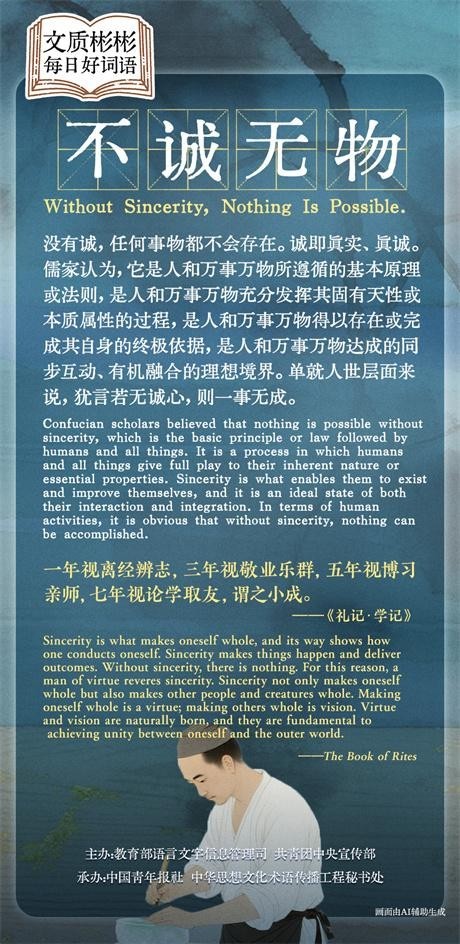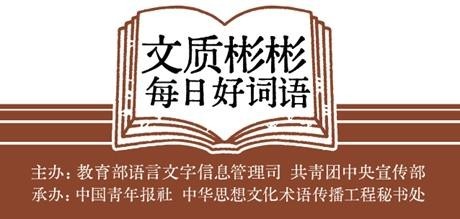
整理/秦珍子 制图/汪琪(实习生)
不诚无物
没有诚,任何事物都不会存在。诚即真实、真诚。儒家认为,它是人和万事万物所遵循的基本原理或法则,是人和万事万物充分发挥其固有天性或本质属性的过程,是人和万事万物得以存在或完成其自身的终极依据,是人和万事万物达成的同步互动、有机融合的理想境界。单就人世层面来说,犹言若无诚心,则一事无成。这一命题表达了“诚”的实在性、终极性、人的主体性以及主客体的统一性。
Without Sincerity, Nothing Is Possible.
Confucian scholars believed that nothing is possible without sincerity, which is the basic principle or law followed by humans and all things. It is a process in which humans and all things give full play to their inherent nature or essential properties. Sincerity is what enables them to exist and improve themselves, and it is an ideal state of both their interaction and integration. In terms of human activities, it is obvious that without sincerity, nothing can be accomplished. This notion stresses that sincerity is both real and fundamental, that humans have subjectivity, and that with sincerity, they can achieve unity with the outer world.
引例诚者自成也,而道自道(dǎo)也。诚者,物之终始。不诚无物。是故君子诚之为贵。诚者,非自成己而已也,所以成物也。成己,仁也;成物,知(zhì)也。性之德也,合外内之道也。(《礼记·中庸》)(诚是自我完成,道是自我引导。诚贯穿事物发展的始终。没有诚,则任何事物都不会存在。所以君子特别崇尚诚。诚不只是自我完成,还要成就万事万物。完成自我是仁,成就万事万物是智。仁与智乃出于天性,是融合自身与外物的基本法则。)
Sincerity is what makes oneself whole, and its way shows how one conducts oneself. Sincerity makes things happen and deliver outcomes. Without sincerity, there is nothing. For this reason, a man of virtue reveres sincerity. Sincerity not only makes oneself whole but also makes other people and creatures whole. Making oneself whole is a virtue; making others whole is vision. Virtue and vision are naturally born, and they are fundamental to achieving unity between oneself and the outer world. (The Book of Rites)

来源:中国青年报
2025年09月09日 02版





 京公网安备 11010102004843号
京公网安备 11010102004843号